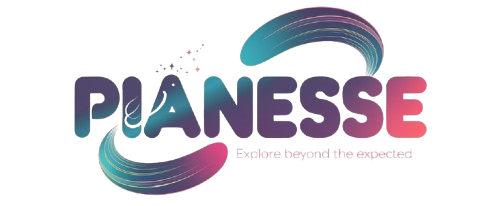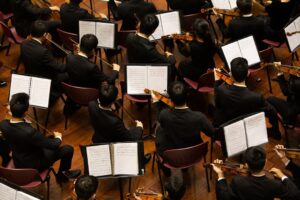Unlocking the Magic: Educational Proclamations in Harry Potter

Education in the wizarding world serves as a cornerstone for personal development, societal structure, and the perpetuation of magical knowledge. It is not merely a means to acquire skills but a transformative journey that shapes the identity and moral compass of young witches and wizards. The significance of education is underscored by the fact that it is often the first place where young magical beings learn about their heritage, the responsibilities that come with their powers, and the intricate balance between good and evil.
In a realm where magic can be both a tool for creation and destruction, the role of education becomes paramount in guiding students toward ethical practices and informed decision-making. The educational framework in the wizarding world is designed to cultivate not only academic prowess but also emotional intelligence and social responsibility. Institutions like Hogwarts School of Witchcraft and Wizardry provide a structured environment where students can explore their abilities, confront challenges, and learn from their peers.
The curriculum is rich and varied, encompassing a wide range of subjects that reflect the complexities of magical life. This multifaceted approach ensures that students are well-rounded individuals capable of navigating the intricacies of both magical and non-magical societies. The power of education in this context is not just about mastering spells or potions; it is about fostering a sense of community, resilience, and ethical awareness.
Key Takeaways
- Education is a powerful tool in the wizarding world, shaping the lives and abilities of young witches and wizards.
- Hogwarts School of Witchcraft and Wizardry serves as a model for magical education, providing a comprehensive and immersive learning experience.
- Subjects like Potions, Charms, and Transfiguration play a crucial role in developing magical skills and knowledge.
- Teachers, from wise leaders like Dumbledore to dedicated educators like McGonagall, play a significant role in shaping students’ magical education and character development.
- Magical education at Hogwarts has a profound impact on the character development of students, shaping their values, beliefs, and abilities.
Hogwarts School of Witchcraft and Wizardry: A Model for Magical Education
Hogwarts stands as a paragon of magical education, renowned for its rich history, diverse curriculum, and unique approach to teaching. Founded over a thousand years ago, it has become synonymous with excellence in magical training. The school’s four houses—Gryffindor, Hufflepuff, Ravenclaw, and Slytherin—each embody distinct values and characteristics, promoting a sense of belonging among students while encouraging healthy competition.
This house system not only fosters camaraderie but also instills important life lessons about teamwork, loyalty, and personal growth. The physical structure of Hogwarts itself is steeped in enchantment and history, with moving staircases, hidden rooms, and magical creatures that contribute to an immersive learning experience. The castle serves as more than just a backdrop; it is an integral part of the educational journey.
Students are encouraged to explore their surroundings, which enhances their understanding of magic in a practical context. The school’s emphasis on experiential learning allows students to engage with their environment actively, making education a dynamic process rather than a passive one. This model of education emphasizes the importance of curiosity and exploration, essential traits for any aspiring witch or wizard.
The Importance of Magical Subjects: Potions, Charms, and Transfiguration

The curriculum at Hogwarts encompasses a wide array of magical subjects, each contributing uniquely to a student’s education. Potions, for instance, is not merely about mixing ingredients; it is an intricate science that requires precision, creativity, and an understanding of magical properties. The subject teaches students about the delicate balance between different elements and the consequences of their actions—an essential lesson in responsibility.
Mastery of potions can lead to remarkable achievements, such as healing elixirs or powerful brews that can enhance magical abilities.
This subject highlights the importance of intention and focus in magic.
Students learn to cast spells that can levitate objects or create protective barriers, emphasizing the practical applications of their studies. Charms also encourage creativity; students often find innovative ways to apply what they learn in real-world situations. Transfiguration further expands this creative potential by teaching students how to change the form or appearance of an object or creature.
This subject requires not only technical skill but also a deep understanding of the essence of what is being transformed. The challenges presented in these subjects foster critical thinking and problem-solving skills that are invaluable both within and outside the realm of magic.
The Role of Teachers: From Dumbledore to McGonagall
| Teacher | Subject | Years of Experience | Teaching Style |
|---|---|---|---|
| Albus Dumbledore | Transfiguration | Over 50 years | Wise, patient, and supportive |
| Minerva McGonagall | Transfiguration | Over 39 years | Firm, fair, and strict |
Teachers at Hogwarts play a pivotal role in shaping the educational experience of their students. Figures like Albus Dumbledore and Minerva McGonagall exemplify the profound impact that dedicated educators can have on young minds. Dumbledore, as headmaster, embodies wisdom and compassion.
His approach to teaching goes beyond mere academics; he instills values such as courage, friendship, and the importance of choices. Dumbledore’s mentorship encourages students to think critically about their actions and their implications in the broader context of good versus evil. Minerva McGonagall, as Transfiguration professor and later headmistress, represents discipline combined with nurturing guidance.
Her strict yet fair demeanor fosters respect among her students while challenging them to excel. McGonagall’s commitment to her students’ success is evident in her willingness to provide additional support when needed. The diverse teaching styles at Hogwarts reflect the multifaceted nature of education itself; different approaches resonate with different students, allowing for personalized learning experiences that cater to individual strengths and weaknesses.
The Impact of Magical Education on Character Development
Magical education at Hogwarts extends far beyond academic achievement; it plays a crucial role in character development. The challenges faced by students—whether in mastering difficult spells or navigating complex social dynamics—serve as catalysts for personal growth. Through their experiences at Hogwarts, students learn resilience in the face of adversity, empathy towards others, and the importance of standing up for what is right.
Moreover, the diverse backgrounds of students contribute to a rich tapestry of perspectives that enhance character development. Interactions among students from different houses foster understanding and tolerance, teaching them to appreciate diversity in thought and experience.
This exposure is vital in preparing them for life beyond Hogwarts, where they will encounter individuals with varying beliefs and values. The friendships formed during these formative years often last a lifetime, providing a support network that reinforces positive character traits long after graduation.
The Dark Arts: Understanding the Dangers of Unethical Magic

While Hogwarts provides a comprehensive magical education, it also acknowledges the existence of darker aspects of magic through subjects like Defense Against the Dark Arts. This course is essential for equipping students with the knowledge necessary to recognize and combat unethical practices. Understanding the Dark Arts is not merely about learning spells; it involves grappling with moral dilemmas surrounding power and its potential for corruption.
Students are taught to approach magic with caution and respect, recognizing that every spell has consequences. The exploration of dark magic serves as a cautionary tale about the misuse of power. Characters like Tom Riddle (Lord Voldemort) exemplify how ambition unchecked by ethics can lead to devastating outcomes.
By studying these dangers within an educational framework, students are encouraged to reflect on their values and make informed choices about how they wield their own magical abilities. This critical examination fosters a sense of responsibility among young witches and wizards as they navigate their paths in a world where ethical considerations are paramount.
The Value of Hands-On Learning: Practical Lessons at Hogwarts
Hogwarts emphasizes hands-on learning as an integral part of its educational philosophy. Practical lessons allow students to apply theoretical knowledge in real-world contexts, reinforcing their understanding through experience. Subjects like Herbology require students to work directly with magical plants, teaching them not only about their properties but also about care and responsibility for living things.
This experiential approach cultivates a deeper appreciation for nature and its interconnectedness with magic. Similarly, practical lessons in Potions involve meticulous preparation and experimentation. Students learn through trial and error, gaining insights into the nuances of potion-making that cannot be captured through textbooks alone.
These hands-on experiences foster confidence as students see firsthand the results of their efforts—whether successful or otherwise—and encourage them to embrace failure as part of the learning process. Such practical applications are vital in preparing students for future challenges in both magical careers and everyday life.
Beyond the Classroom: The Influence of Extra-Curricular Activities
Beyond formal classes, extra-curricular activities at Hogwarts play a significant role in shaping student experiences and fostering personal growth. Clubs such as Dumbledore’s Army provide opportunities for students to engage in practical defense training while building camaraderie among peers who share similar interests. These activities encourage leadership skills and teamwork while reinforcing the importance of standing together against adversity.
Quidditch also serves as more than just a sport; it teaches valuable lessons about competition, strategy, and resilience. Participation in team sports fosters a sense of belonging while promoting physical fitness and mental agility. The diverse range of extra-curricular options available at Hogwarts allows students to explore their passions outside traditional academics, contributing to well-rounded character development.
These experiences enrich their time at school and prepare them for future endeavors by instilling skills that extend far beyond the walls of Hogwarts itself.
FAQs
What are educational proclamations in Harry Potter?
Educational proclamations in Harry Potter are decrees issued by the Ministry of Magic to regulate and control the educational system at Hogwarts School of Witchcraft and Wizardry.
What is the significance of the educational proclamations in the Harry Potter series?
The educational proclamations in the Harry Potter series serve as a tool for the Ministry of Magic to exert control over the curriculum, staffing, and overall management of Hogwarts, often reflecting the political climate and power struggles within the wizarding world.
How are the educational proclamations framed in the Harry Potter series?
In the Harry Potter series, the educational proclamations are framed as official documents, often displayed in prominent locations within Hogwarts, such as notice boards and common areas, to ensure that students and staff are aware of the Ministry’s directives.
What impact do the educational proclamations have on the characters in the Harry Potter series?
The educational proclamations create tension and conflict among the characters, as they challenge the traditional values and autonomy of Hogwarts, leading to resistance and defiance from students and faculty who seek to preserve the school’s integrity and independence.







